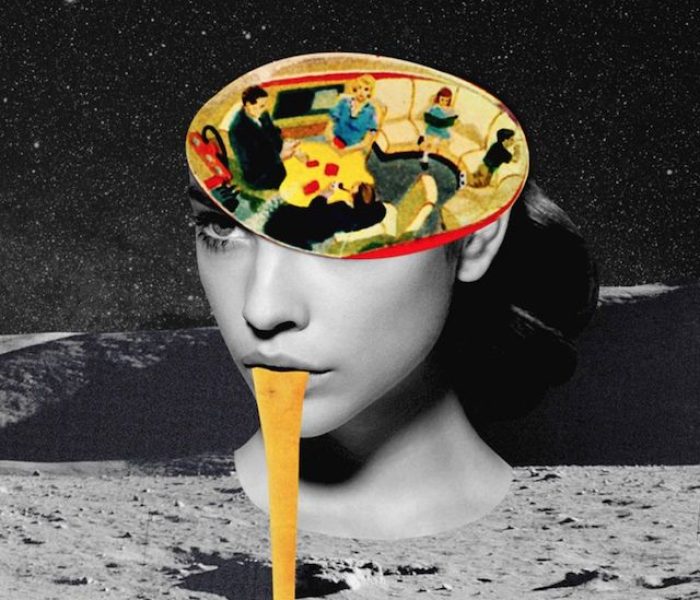In this article you will read about:
Impulsivity, a multifaceted personality trait, profoundly influences how individuals make decisions, control their impulses, and navigate life’s challenges. It encompasses a broad spectrum of behaviors, ranging from spontaneous decision-making to a lack of self-control and consideration of consequences. In this article, we will delve into the intricate world of impulsivity, defining the trait, examining its subtypes, discussing potential causes, consequences, and strategies for managing and harnessing this trait effectively.
Defining Impulsivity
Impulsivity can be broadly defined as a personality trait characterized by a tendency to act on immediate desires or urges with little consideration for potential consequences. Individuals with impulsivity traits often exhibit behaviors such as making hasty decisions, acting without thinking, and struggling to control their impulses.
Subtypes of Impulsivity
Motor Impulsivity
Motor impulsivity refers to the tendency to act without thinking, often resulting in accidents or impulsive behaviors. Individuals with this subtype may engage in risky activities or have difficulty waiting their turn.
Cognitive Impulsivity
Cognitive impulsivity involves hasty decision-making, where individuals may struggle to fully evaluate options and consequences. This subtype can lead to poor judgment and impulsive choices.
Emotional Impulsivity
Emotional impulsivity encompasses acting on intense emotional reactions without considering the potential impact. Individuals with this subtype may have difficulty managing anger, frustration, or excitement.
"Impulsivity reminds us that we are human, prone to imperfection and the allure of immediate gratification. It's a trait that can be harnessed and channeled for growth."
Anonymous Tweet
Causes of Impulsivity
The development of impulsivity can be influenced by a combination of genetic, environmental, and psychological factors:
1. Neurobiological Factors
Differences in brain structure and neurotransmitter function, particularly in the prefrontal cortex, can contribute to impulsivity traits.
2. Early Childhood Experiences
Traumatic or chaotic early childhood experiences can shape impulsive behaviors, as individuals may learn to react impulsively to unpredictable environments.
3. Genetics
Research suggests a genetic component to impulsivity, with certain genetic markers associated with impulsive traits.
4. Substance Use
Substance abuse, including drugs and alcohol, can exacerbate impulsivity, leading to impulsive behaviors and poor decision-making.
Expert Opinions
"Understanding impulsivity is the first step toward gaining control over our actions and making more thoughtful, intentional choices."
Emily Roberts, Clinical Psychologist Tweet
"Impulsivity doesn't define who you are; it's a trait that can be transformed through self-awareness and practice."
Mark Turner, Psychiatrist Tweet
Consequences of Impulsivity
Impulsivity can have significant consequences, affecting various aspects of an individual’s life:
1. Relationship Strain
Impulsivity can strain personal and professional relationships, as impulsive actions may lead to conflicts and misunderstandings.
2. Financial Instability
Poor financial decisions and impulsive spending can result in financial instability and debt.
3. Legal Issues
Impulsive behaviors, such as reckless driving or criminal activities, can lead to legal problems and consequences.
4. Mental Health Challenges
Impulsivity is often linked to mental health conditions such as Attention-Deficit/Hyperactivity Disorder (ADHD), bipolar disorder, and borderline personality disorder.
Managing and Harnessing Impulsivity
While impulsivity can present challenges, there are strategies and interventions that individuals can employ to manage and harness this trait effectively:
1. Mindfulness and Self-Awareness
Developing mindfulness practices and self-awareness can help individuals recognize impulsive urges and pause before acting on them.
2. Cognitive-Behavioral Therapy (CBT)
Cognitive-behavioral therapy (CBT) techniques can help individuals identify impulsive thought patterns, challenge irrational beliefs, and develop more deliberate decision-making processes.
3. Delayed Gratification
Practicing delayed gratification by setting goals and waiting for rewards can enhance self-control and reduce impulsivity.
4. Healthy Coping Mechanisms
Learning and practicing healthy coping mechanisms, such as deep breathing exercises or engaging in physical activity, can help manage impulsive emotional reactions.
5. Medication
In cases where impulsivity is linked to underlying mental health conditions, medication prescribed by a healthcare professional may be beneficial.
Impulsivity Book Recommendations
Here is a collection of the best books on the market related to impulsivity:
Our commitment to you
Our team takes pride in crafting informative and well-researched articles and resources for our readers.
We believe in making academic writing accessible and engaging for everyone, which is why we take great care in curating only the most reliable and verifiable sources of knowledge. By presenting complex concepts in a simplified and concise manner, we hope to make learning an enjoyable experience that can leave a lasting impact on our readers.
Additionally, we strive to make our articles visually appealing and aesthetically pleasing, using different design elements and techniques to enhance the reader’s experience. We firmly believe that the way in which information is presented can have a significant impact on how well it is understood and retained, and we take this responsibility seriously.
Click on the icon to see all your thoughts in the Dashboard.
Your Thoughts about Impulsivity
It’s highly recommended that you jot down any ideas or reflections that come to mind regarding impulsivity, including related behaviours, emotions, situations, or other associations you may make. This way, you can refer back to them on your Dashboard or Reflect pop-ups, compare them with your current behaviours, and make any necessary adjustments to keep evolving. Learn more about this feature and how it can benefit you.
References
Moeller, F. G., Barratt, E. S., Dougherty, D. M., Schmitz, J. M., & Swann, A. C. (2001). Psychiatric Aspects of Impulsivity. American Journal of Psychiatry, 158(11), 1783-1793.
Evenden, J. L. (1999). Varieties of Impulsivity. Psychopharmacology, 146(4), 348-361.
Dalley, J. W., Everitt, B. J., & Robbins, T. W. (2011). Impulsivity, Compulsivity, and Top-Down Cognitive Control. Neuron, 69(4), 680-694.
Bari, A., & Robbins, T. W. (2013). Inhibition and Impulsivity: Behavioral and Neural Basis of Response Control. Progress in Neurobiology, 108, 44-79.
Bechara, A. (2005). Decision Making, Impulse Control, and Loss of Willpower to Resist Drugs: A Neurocognitive Perspective. Nature Neuroscience, 8(11), 1458-1463.




